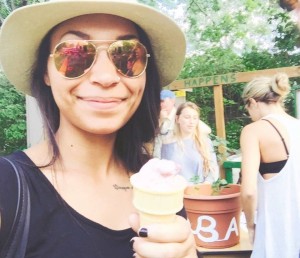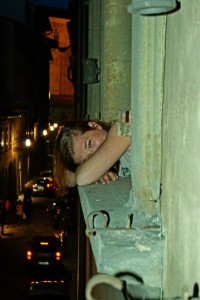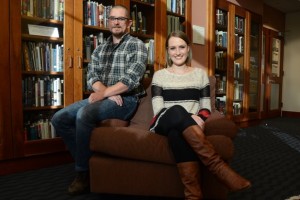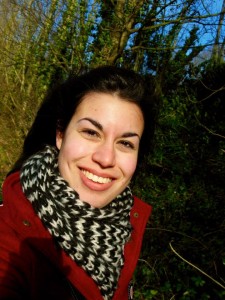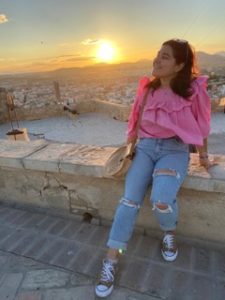 Besides fulfilling the internship and research requirements of their major, some PWR students decide to take advantage of one or more of the other experiential learning opportunities that Elon offers. Studying abroad (either for the summer, winter term, or a whole semester) is one of the most popular options. One PWR major who chose to include this experience in her college journey is senior Myrta Santana-Santini; she studied in Alicante, Spain for the 2020 spring semester. While Myrta unfortunately had to return to the United States early because of the COVID-19 pandemic, her experience abroad informed her understanding of languages, world cultures, her professional goals, and herself, as she shared in her responses to the following questions:
Besides fulfilling the internship and research requirements of their major, some PWR students decide to take advantage of one or more of the other experiential learning opportunities that Elon offers. Studying abroad (either for the summer, winter term, or a whole semester) is one of the most popular options. One PWR major who chose to include this experience in her college journey is senior Myrta Santana-Santini; she studied in Alicante, Spain for the 2020 spring semester. While Myrta unfortunately had to return to the United States early because of the COVID-19 pandemic, her experience abroad informed her understanding of languages, world cultures, her professional goals, and herself, as she shared in her responses to the following questions:
Why did you decide to study abroad in Spain and more specifically in Alicante?
Having been born and raised in San Juan, Puerto Rico, with an education that was primarily in Spanish, the best answer I can give is that I missed the language. I love the English language, but something about learning in your native language is different. I also have to confess that I chose Spain because I knew it would not be a major challenge, meaning that I could learn while also taking a break of sorts. Now as to why Alicante? The beach. I wanted to be close to the beach again, because after living my whole life close to the beach, these last three to four years in NC where the beach is three hours away has been weird.
What classes did you take while abroad?
While I was abroad, I took five classes total, one of them being a two-week intensive course on the Spanish language and grammar. This was actually funny and frustrating because while I am fluent in Spanish and it’s my first language, Puerto Rican Spanish is very different from Spain Spanish. After that course was done, I began my full semester classes which included History of Spain, Art History of Spain, Colloquial Spanish, and Pop Culture in Spain. These classes were all very interesting, and they helped me adapt to the day to day life in Spain while also learning Spanish history. My favorite was the Colloquial Spanish class because so many words that I use have multiple meanings, and being able to pick those out and see why they mean what they do to each place was an amazing experience.
Did you visit any interesting places while in Spain, and if so, where did you go?
I was only able to visit some places in Spain–not as many as I would have wanted, but enough for the time I had. I went to Barcelona, Valencia, and Granada for a weekend each, and the experiences I had in each city were unforgettable. Granada was my favorite because of the mix of cultures present there and the historical landmark La Alhambra. As an art history double major, being able to visit this fortress is something I am still not over.
I was only able to visit one place outside Spain, but it was Paris, so that made up for it. Paris is an amazing city that captivated me; one of my favorite moments from my time there was in a bookstore (because I wouldn’t be me if I didn’t visit a bookstore abroad). The Shakespeare and Company Bookstore is a hole-in-the-wall store that everyone seems to know about and want to visit, and I understand why. The space inside is cramped, covered in books of all genres, and has a calm and serene feeling even when there are many people inside. As I was walking around, I saw that they would stamp whatever book you bought with a store stamp as proof that you visited, so of course I had to buy a book. The employees also wrote surprise poems on a typewriter for customers to read. It was the perfect experience for my English-major-nerd heart.
What did you find most interesting about Spanish culture?
The most interesting things about Spanish culture, in my opinion, are how laid back they are and how little they care about the small things. We learned the saying “no pasa nada,” which translates to “everything is okay” or “there is no problem.”
How did the semester go for you after COVID-19 became a global pandemic?
Unfortunately, I only had two and half months in Spain, instead of the four and a half I was supposed to have. While I am grateful for the time I did have, it was frustrating because many of the trips I had planned were scheduled for the second half of the semester. The program also did not want to give us a refund for a portion of the semester we didn’t have there because we still finished the classes online, but it wasn’t the same. The whole purpose of those classes was the immersion–to practice what we learned in a real environment. So in a way the experience was not complete, but in the end, “no pasa nada.”
How did this experience apply to your majors and/or future career goals?
I want to hopefully work within the editing and publishing field, and I want to be able to use my bilingual abilities within my career. I have considered working with translation, and this experience taught me that even when you know something there is always more to learn, because I learned much more about the Spanish language during my time abroad within the context of Spain.
Would you recommend the Alicante program to other students? Why or why not?
I don’t know if it was because of the pandemic, but I will admit that the Alicante CIEE office was a bit disorganized. However, the professors themselves were amazing. Again, I can’t give an accurate recommendation because of the situation, but I will say that location-wise, the experience is worth it.
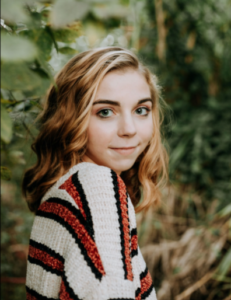 Hello everyone! My name is Mollie Lund and I am happy to announce that I will be the social media intern for Professional Writing and Rhetoric this Fall semester. I am a sophomore at Elon and I am double majoring in PWR and International/Global Studies. I became interested in pursuing PWR early on in my first semester here at Elon. I have always loved writing, and I wanted a major that would allow me to pursue a career that I am passionate about. I stumbled upon the PWR department while perusing possible English-related majors in my Elon 101 course, and I promptly decided to give it the old college try. My PWR experience began in Professor Maynard’s PWR 211 class over the J-term semester of my Freshman year. I quickly realized that I belonged in PWR, collaborating with my peers and learning new styles of writing.
Hello everyone! My name is Mollie Lund and I am happy to announce that I will be the social media intern for Professional Writing and Rhetoric this Fall semester. I am a sophomore at Elon and I am double majoring in PWR and International/Global Studies. I became interested in pursuing PWR early on in my first semester here at Elon. I have always loved writing, and I wanted a major that would allow me to pursue a career that I am passionate about. I stumbled upon the PWR department while perusing possible English-related majors in my Elon 101 course, and I promptly decided to give it the old college try. My PWR experience began in Professor Maynard’s PWR 211 class over the J-term semester of my Freshman year. I quickly realized that I belonged in PWR, collaborating with my peers and learning new styles of writing.
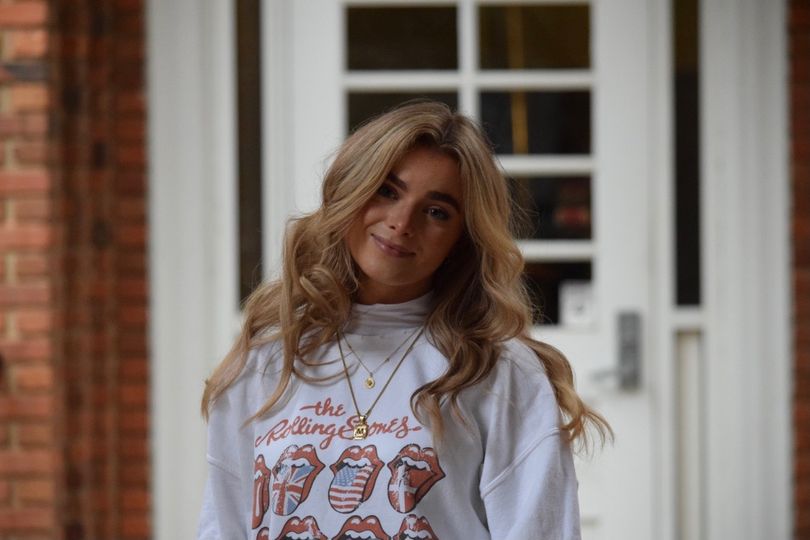

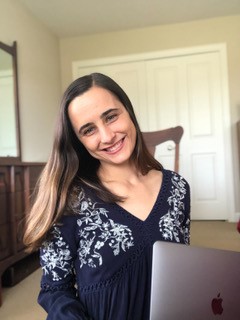
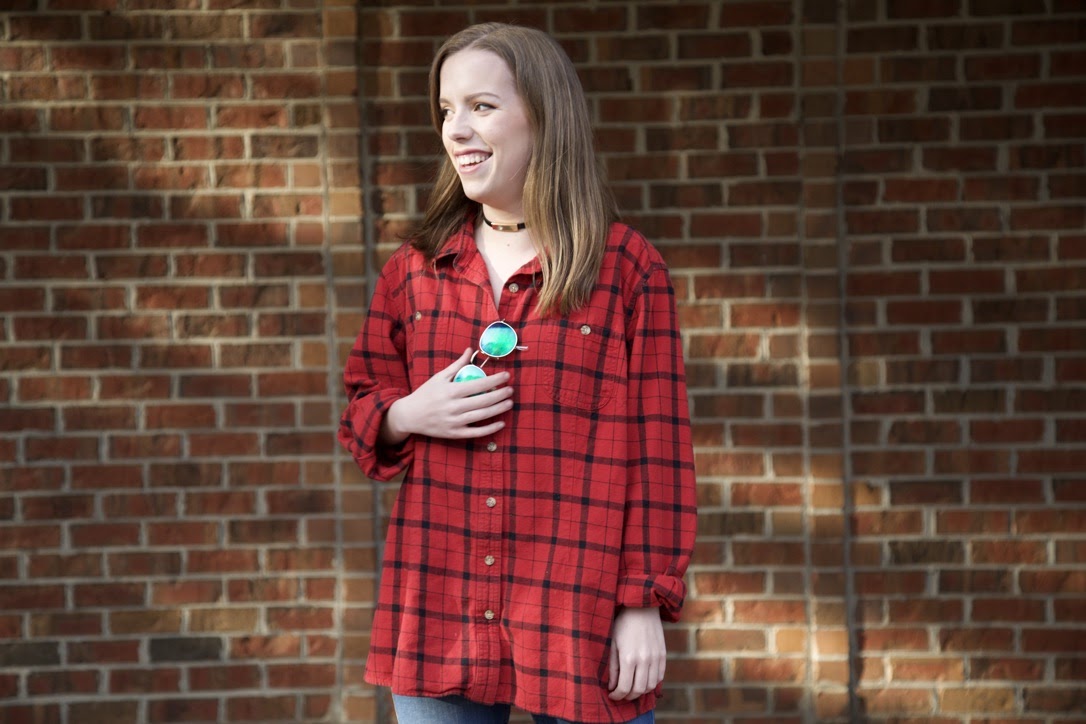
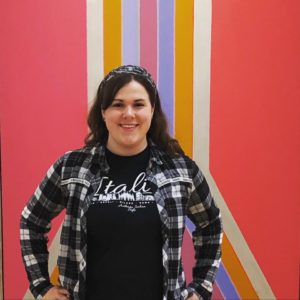
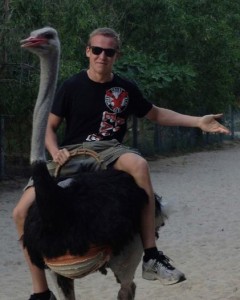 “PWR has taught me the power of rhetoric as a tool for enacting change in the world, as well as the need to lead future authors by example towards an ethical relationship with rhetoric.”
“PWR has taught me the power of rhetoric as a tool for enacting change in the world, as well as the need to lead future authors by example towards an ethical relationship with rhetoric.”